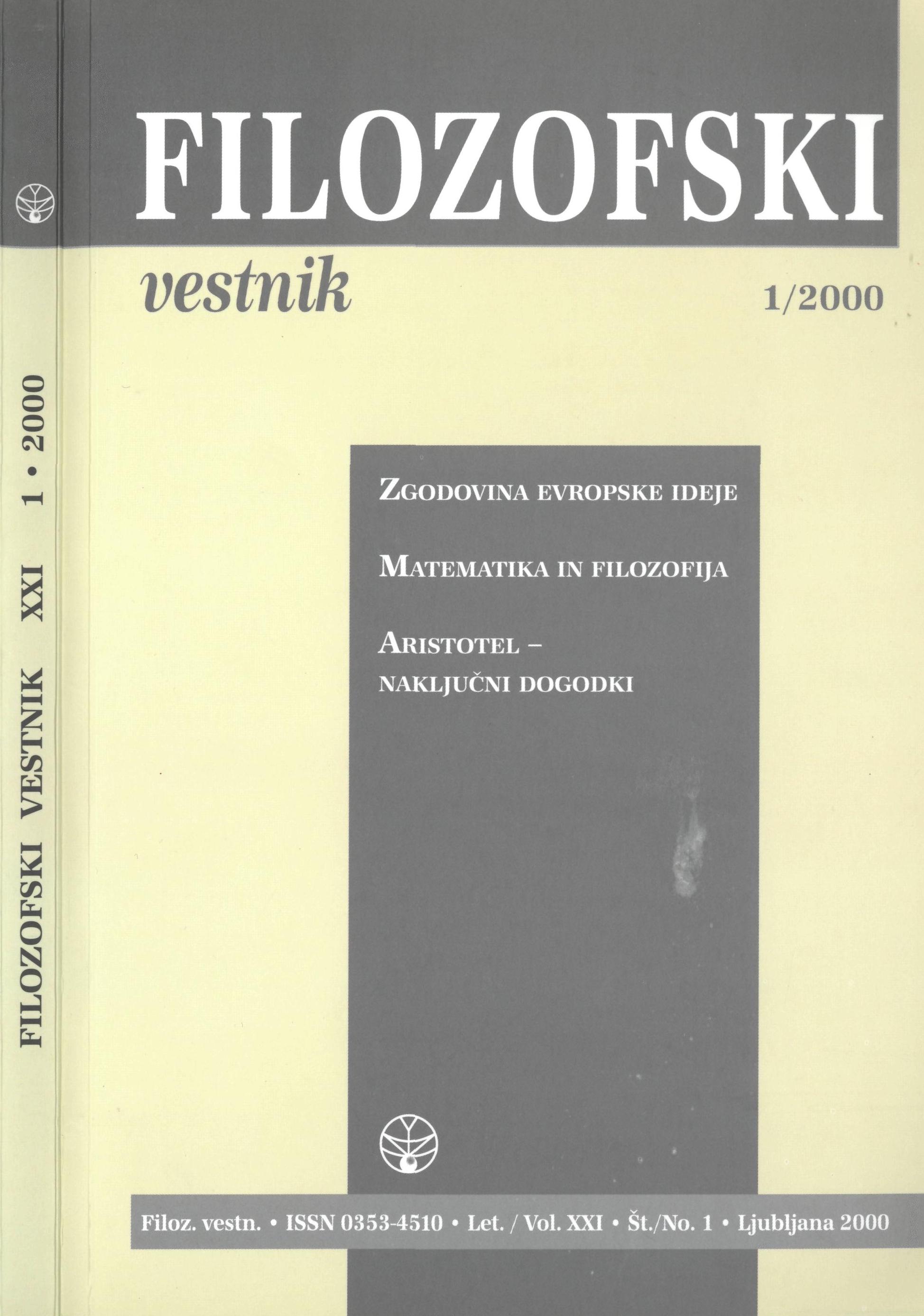Nikolaj Kuzanski in Aristotelova filozofija matematike
Ključne besede:
matematika, abstrakcija, “bivajoče razuma”, Nikolaj Kuzanski, AristotelPovzetek
Eden osnovnih elementov filozofije matematike Nikolaja Kuzanskega je njegova teorija o matematičnih predmetih kot “bivajočem razuma” (ens rationis). O teh večkrat govori kot o “abstrahiranih iz čutnozaznavnih stvari”, kar daje misliti, da se Kuzanski svojo filozofijo matematike opira na Aristotelovo filozofijo matematike. Tudi Aristotel namreč večkrat govori o tem, da matematični predmeti nastanejo z abstrakcijo (eks aphaireseos). Avtor analizira, kako Kuzanski razume abstrakcijo v De docta ignorantia in De mente ter skuša pokazati, da je po Kuzanskem abstrakcija, ki je ens rationis, hkrati tudi spodbuda za to, da človeški duh iz samega sebe proizvaja matematične entitete. Avtor skuša tudi pokazati, da se Kuzančeva filozofija matematike ne opira neposredno na Aristotelovo filozofijo matematike – Aristotel ni “abstrakcionist” v tem pomenu, da bi eksistenco matematičnih predmetov pripisoval matematikovemu mišljenju –, ampak na “abstrakcionistično” interpretacijo Aristotela, ki jo je uveljavil Aleksander iz Afrodizije, ki so mu sledili kasnejši, pretežno neoplatonistično usmerjeni Aristotelovi komentatorji, ki niso videli kakih pomembnih razlik v metafizičnih in epistemoloških postavkah “abstrakcionizma” in t. i. “projekcionizma”, to je teorije, da matematični predmeti že bivajo v človeški duši.Prenosi
Podatki o prenosih še niso na voljo.
Prenosi
Objavljeno
2016-01-17
Kako citirati
Vesel, M. (2016). Nikolaj Kuzanski in Aristotelova filozofija matematike. Filozofski Vestnik, 21(1). Pridobljeno od https://ojs.zrc-sazu.si/filozofski-vestnik/article/view/3729
Številka
Rubrike
Matematika in filozofija
Licenca
Avtorji jamčijo, da je delo njihova avtorska stvaritev, da v njem niso kršene avtorske pravice tretjih oseb ali kake druge pravice. V primeru zahtevkov tretjih oseb se avtorji zavezujejo, da bodo varovali interese založnika ter da bodo povrnili morebitno škodo.
Podrobneje v rubriki: Prispevki





